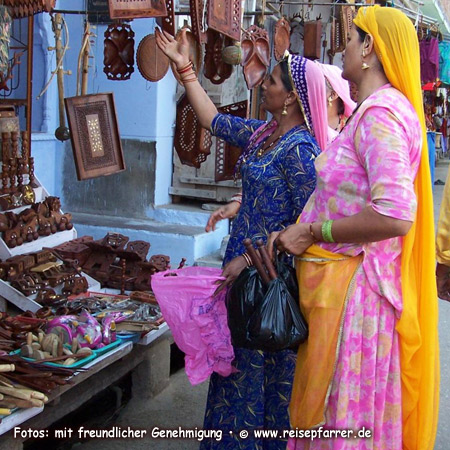
The very first thing that happened when I set my dainty foot on the main floor of the office where I work in London last week is that all the analysts wanted to know what the dealio was with Greece. Is Greece the next Dubai? How soon do I think Greece would default on her debt? What are the odds of Greece abandoning the Euro and the EU? And now you guys have riots on the streets too because of the economy! Tell us, Bollybutton, what in Zeus's name has happened to make the Greek economy so bad!
And I was standing there thinking "For shizz?" Let's straighten out a few things here. Greece's economy isn't that bad, because it's never been that good, and to understand why, let's take a quick refreshing dip into her past.
For a country to have a strong and stable economy it needs a strong and stable past. Once's Greece's glory day party was over, all she was left with was an unmade bed and the West promising to call.
In the 1800s, Greece emerged from a 400 year Ottoman occupation which is no mean feat. By lots of scheming and dodging, Greece is one of few countries that emerged from a 400 year foreign occupation with her religion, language and culture practically unscathed.
How does this relate to the economy? While much of the West was having the Age of Enlightenment and the Renaissance, the Greeks were standing infront of the equivalent of a bored bank employee telling them "Computer says no" every time they wanted to try something new, say, like develop their country.
So in the 1800s the Greeks waged a bitter and bloody battle for their freedom and won it in a totally David vs Goliath kinda way. They'd barely had a chance to crack open the ouzo when World War I busted in to break up their party.
World War I ends, and Greece ends up pretty much bankrupt having sided with the Allies. The Allies think "Jolly wot wot, let's give Greece Smyrna as a reward". They let Greece invade Smyrna, the Greek army runs wild, and the Turks brutally retaliate while the Allies wonder what's for pudding. As a consequence of the immediate tragedy and the League of Nations' ridiculous solution in 1923 of forcibly moving all Christians from Turkey to Greece and vice versa, 1.5 million refugees pour into an already ruined country.
So that's Greece in the 1920s, absolutely at her wits end and being saddled with more people. Soon follows World War II, a civil war, a military dictatorship and it isn't until the 1970s that any kind of democtratic stability returns to Greece.
Now, how exactly do you build a world-class economy in the space of 35 years? The answer is you don't. You can't. It's like taking a starving orphan and saying "Next week, I want you to look like Mr Universe."
So back to what my colleagues asked me:
1) Is Greece going to default on her debt?
Not a chance. We're in the EU. Why would we want to go the way of Iceland? Though part of me thinks we should do it just to piss off Europe.
2) Is Greece the next Dubai?
You mean a ridiculously oil-rich country with more money than taste? Again, no way. And this is for a number of reasons. First, Greece hasn't enjoyed anywhere close to Dubai's boom to be in danger of a bust. Second, Greece has next to nothing in common with Dubai as a society, and that is very important to factor in.
A friend of mine earlier this year wrote an article on how well Greece was weathering the credit crunch compared to her neighbours. This has a lot to do with the social set-up. Greece didn't suffer the wave of bank crackdowns and reposessions that the UK did.
In Greece, it's unthinkable for someone to let their child or friend lose their house because they fall behind on payments. People will pitch in to save you losing your house, because home ownership is extremely important to the Greeks. Never underestimate the Mama Factor! Mama will sell everything she owns if it means saving her child's house. Are you listening, analysts in London? Next to Greece, write MAMA FACTOR in big red letters and put a circle around it.
If it's known that you are financially comfortable and let your child or friend lose their house, you will never be able to show your face in public again.
3) What are the odds of Greece abandoning the EU or the Euro?
Minus 2000. Neither of the above will happen. Greece totally lucked out by getting into the EU and will not jump ship. It's ridiculous to even suggest this. Same goes for the Euro. Sure, life is a lot harder for people here since the Euro, but if Greece still had the Drachma when the credit crunch hit, with the way interest levels went haywire Greece would have been totally screwed with a cherry on top.
The Greeks are crazy, but not that crazy.
Why then, is the economy in such a hideous state? Because pretty much everyone avoids following the law. You have more chance of getting a Greek woman to tell you her natural hair colour than you do of your average Greek paying their taxes. They just don't like doing it, because all Greeks distrust the government, and if you look back at their history it's not surprising why.
Still, these shouldn't be excuses, and maybe this crisis is exactly what Greece needs to get our ass into gear. I've always believed in Greece and her potential. It's an amazing country with amazing potential, especially the new generation. Greece deserves progress, change and reform, but this has to come from within, and it's a very messy situation to untangle. Undoing so much corruption will take a very long time. The public sector, where everyone gets paid to do nothing, needs to be shruken or made electronic, as does the system for paying taxes.
Also, declaring self-employed earnings needs to be simpler. I know people who tell me they tried to get their earnings legalised and taxes paid, but it became such an impossible maze of stamps and paperwork that they gave up and went back to flying below the radar.
So, dear analysts in the West, relax. All you need to do with Greece is wait and see. I know a lot of your bonds went bust because of the downgrade, but sit tight and you'll see things will look brighter in the summer. And lastly, those economy-related riots all the news channels in the UK were showing actually have nothing to do with the economy. Those riots were pretty much unrelated. Think of it as our equivalent of a street party.
Have a good Christmas and next time check your facts a little before you go off downgrading your little hearts out.
Image: http://www.athina984.gr/files/imagecache/main/files/news-images/finance_0.jpg







